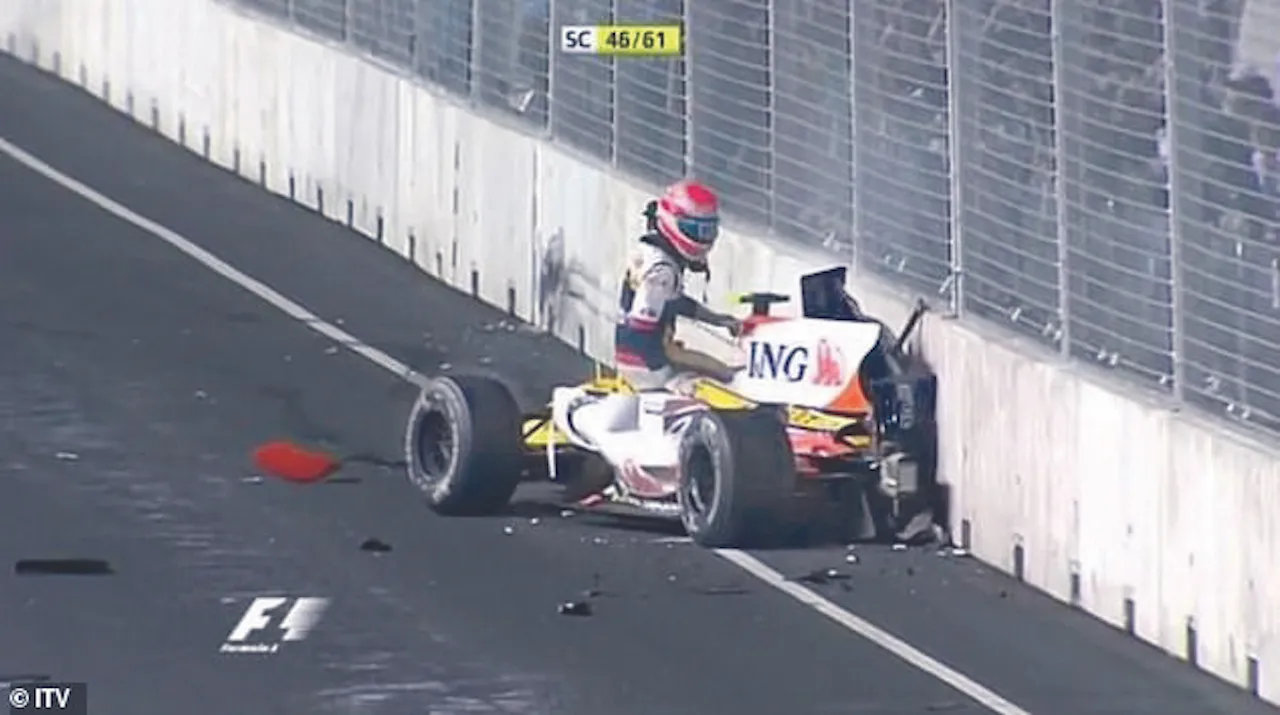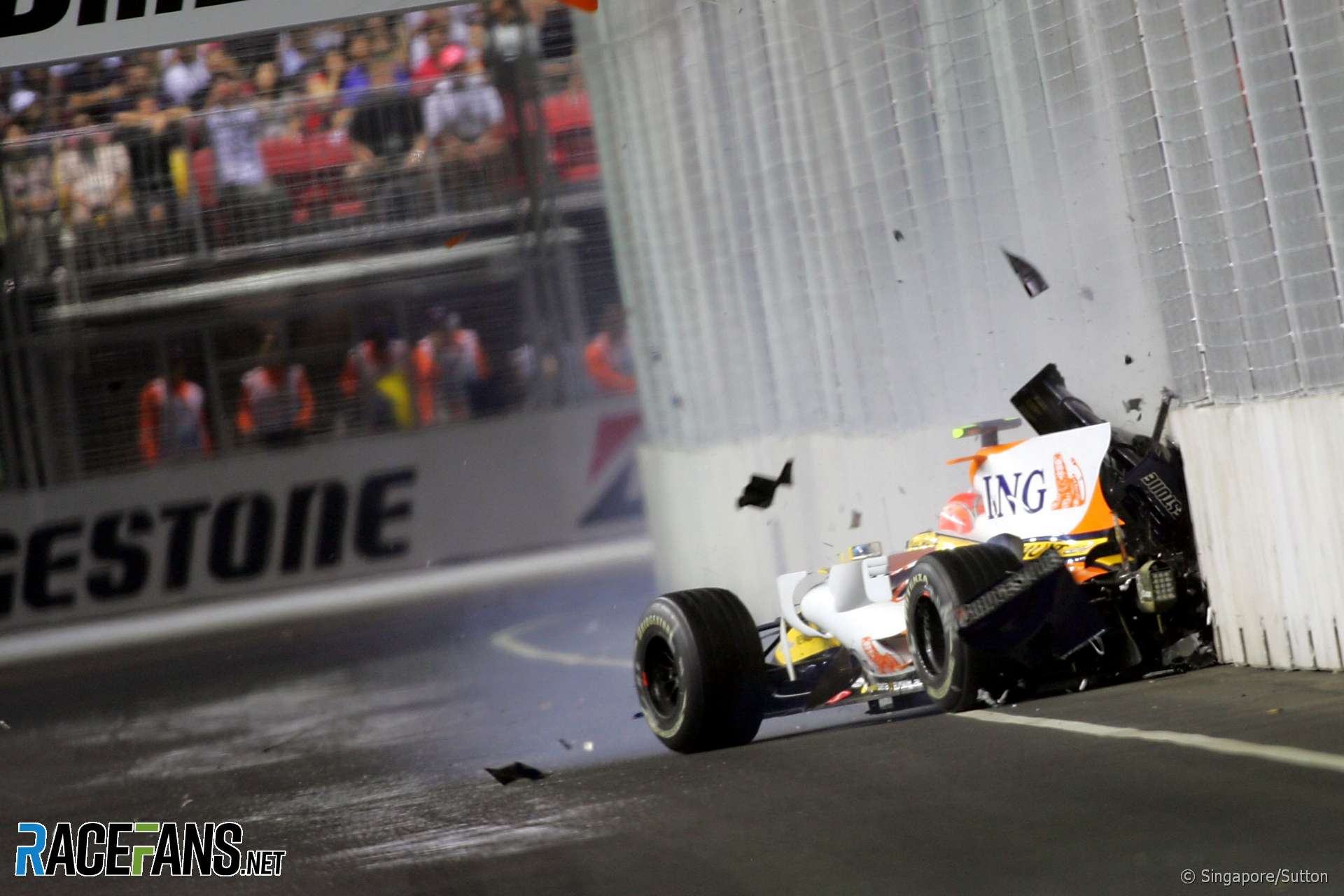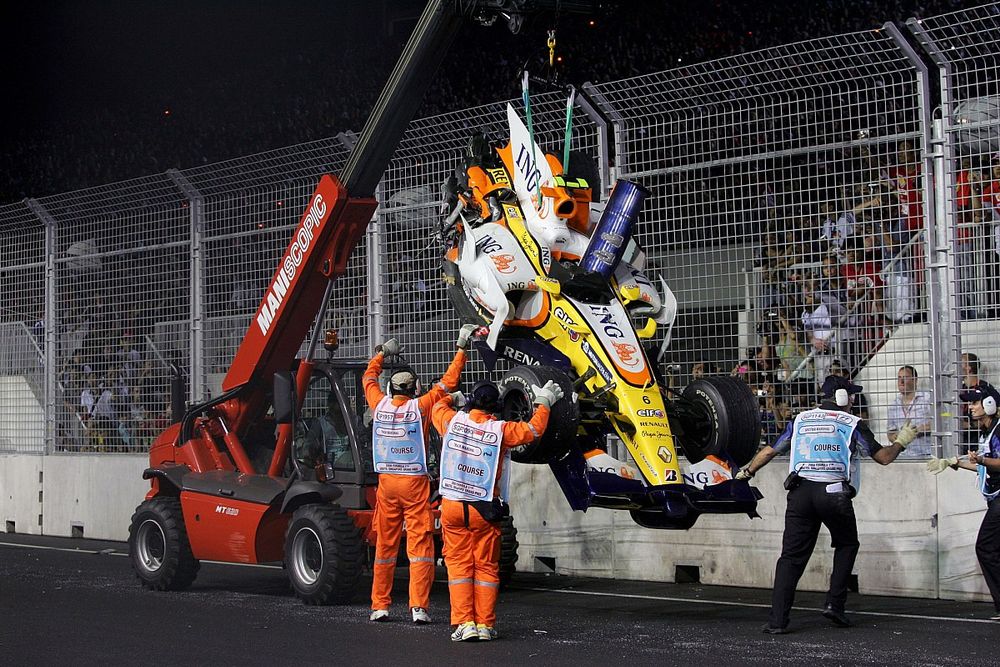In the high-stakes world of Formula 1, where every millisecond matters and the quest for victory often pushes boundaries, there have been several controversial moments that have left an indelible mark on the sport’s history. “Crashgate” is one such incident that rocked the Formula 1 community, revealing a dark side of the sport that shocked fans and insiders alike. This scandal unfolded during the 2008 Formula 1 season and sent shockwaves through the motorsport world. In this blog, we will delve into the details of the “Crashgate” incident, its impact on Formula 1, and the lessons learned from this dark chapter in the sport’s history.

The Backstory
The “Crashgate” scandal centered around the Renault Formula 1 team, specifically involving their star driver Nelson Piquet Jr., team principal Flavio Briatore, and executive director of engineering Pat Symonds. The saga began during the 2008 Formula 1 season when Nelson Piquet Jr. was struggling to secure his place in the team and looking for ways to prove his worth. As the story goes, Piquet Jr. was asked to crash his car deliberately during the 2008 Singapore Grand Prix to bring out a safety car, which would ultimately benefit his teammate, Fernando Alonso.

The Race That Unveiled the Scandal
The 2008 Singapore Grand Prix took place on September 28, and it was a night race, making it the perfect setting for the controversial events that would soon unfold. Piquet Jr. duly crashed his car on lap 14, bringing out the safety car, and his teammate, Fernando Alonso, ultimately went on to win the race. It appeared to be a brilliant strategic move by Renault, but little did anyone know that it was the result of a sinister plot.

Uncovering the Plot
The “Crashgate” incident remained a well-kept secret until over a year later when Nelson Piquet Jr. was unceremoniously dropped from the Renault team. Angered by his dismissal, he, along with his father and manager, decided to reveal the truth about the deliberate crash. In a shocking interview with the press, Piquet Jr. spilled the beans on the orchestrated accident and accused Flavio Briatore and Pat Symonds of conspiring to manipulate the race.

Formula One World Championship, Rd 15, Singapore Grand Prix, Race, Singapore, Sunday 28 September 2008.
The Fallout
The revelation sent shockwaves through the Formula 1 community. The sport, known for its competitive spirit and commitment to fairness, was suddenly thrust into the spotlight for all the wrong reasons. The Fédération Internationale de l’Automobile (FIA), the governing body of Formula 1, launched a thorough investigation into the matter.
Renault was charged with conspiring to fix the race, and Briatore and Symonds were both implicated in the plot. In the aftermath of the investigation, both individuals were found guilty. Flavio Briatore received a lifetime ban from any involvement in Formula 1, while Pat Symonds was banned for five years.
Renault, too, faced significant consequences. They received a suspended ban, meaning they would only face a ban if they committed a similar offense within two years. Fortunately for the team, they cleaned house, implementing significant changes in management to restore their credibility.

Lessons Learned
The “Crashgate” incident served as a stark reminder of the importance of integrity and fair play in Formula 1. The sport relies on a level playing field and strict adherence to rules and regulations. This scandal revealed that even in a highly competitive environment, the temptation to cheat or manipulate outcomes can be too great for some individuals.
The actions of a few tarnished the reputation of the sport as a whole. This incident underscored the need for stringent regulatory oversight and ethics within Formula 1. It also highlighted the importance of whistleblowers who are willing to come forward and reveal misconduct.
Conclusion
“Crashgate” is a dark chapter in the history of Formula 1, but it serves as a reminder of the sport’s commitment to fairness and integrity. The scandal revealed the lengths to which some individuals might go to secure a victory, but it also showed that cheating will not go unpunished. Formula 1 continues to evolve and improve, learning from its past mistakes, and maintaining its status as one of the most prestigious and competitive racing series in the world.



